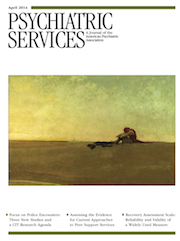Communicating a Schizophrenia Diagnosis to Patients and Families: A Qualitative Study of Mental Health Clinicians
Abstract
Objective
The aim of this research was to explore mental health clinicians’ experiences and perceptions of discussing a diagnosis of schizophrenia with their patients. The results of this research will inform a communication skills training program for psychiatry trainees.
Methods
Semistructured interviews were conducted with 16 mental health clinicians from public mental health services in New South Wales, Australia. Interviews were recorded and transcribed for qualitative analysis.
Results
Although most clinicians supported the need to give patients a named diagnosis of schizophrenia, most gave multiple reasons for not doing so in practice. The reasons given centered on concerns for the patient; they included fear of making an incorrect diagnosis, fear of the patient’s distress, and harm from stigma.
Conclusions
Mental health clinicians need to reflect on their own feelings, examine personal identification with their patients, and recognize the subtle interplay of hope and pessimism in their communication of a schizophrenia diagnosis.



